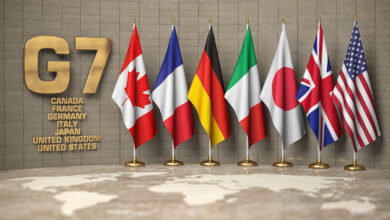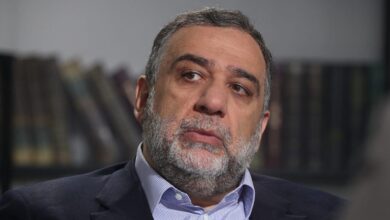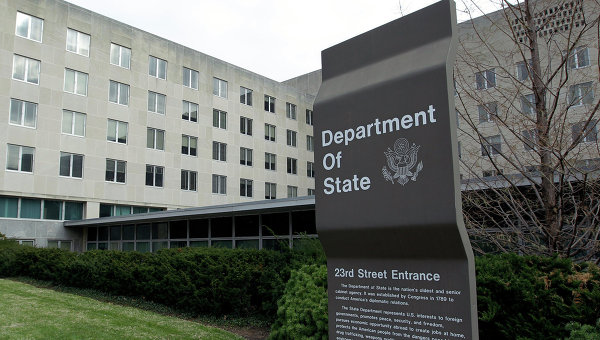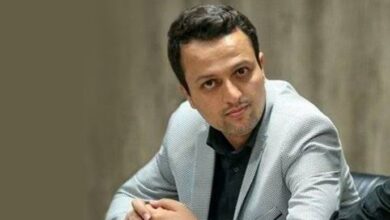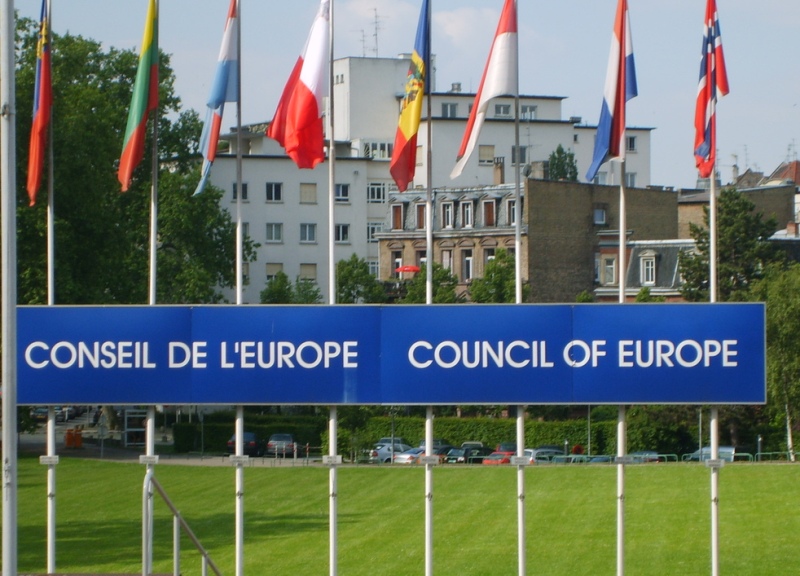
The Republic of Armenia is honoured to assume its first chairmanship of the Committee of Ministers of the Council of Europe, considering it as a further opportunity to bring its contribution to the overall goal of strengthening and consolidating democratic practices in Europe.
The priorities as well as objectives of the Armenian Chairmanship have been defined in response to the challenges that the Council of Europe member States are facing today with regard to the protection of human rights, the further strengthening of democracy and the respect of the rule of law. During its chairmanship, Armenia will endeavour to bring its contribution to strengthening the capabilities of the Organisation and to maximising the efforts in addressing the challenges in the Council of Europe’s fields of excellence, with specific focus on issues which are the most pertinent and require immediate action.
At the same time, the Armenian Chairmanship will support the ongoing reform processes of the Organisation initiated by the Secretary General.
The Armenian Chairmanship will pursue the following goals:
· combating racism and xenophobia in Europe; promoting European values through intercultural dialogue;
· strengthening European standards on human rights and on the rule of law;
· fostering democratic societies;
· reinforcing the role of the Council of Europe in the European architecture.
Combating racism and xenophobia in Europe; promoting European values through intercultural dialogue
Racism and racial discrimination, xenophobia and intolerance violate human dignity and give rise to tensions in European societies. History has repeatedly shown that negligence in addressing these phenomena may tear the fabric of society, thus negatively affecting its cohesion and threatening fundamental human rights. In recent years we have been witnessing the resurgence of this scourge.
The Council of Europe has been continuously engaged in the fight against hatred, intolerance and racial discrimination through standard-setting, monitoring and awareness raising. These threats to our fundamental values require strong political will and adequate action to fight those challenges.
To this end, Armenia will organise a High-Level Conference on Combating Racism and Xenophobia and Intolerance in Europe. The purpose of the conference is to reflect upon racism and xenophobia in political discourse, as well as issues related to combating hate speech and racial stereotypes in the social networks and media, and the role of national and European mechanisms in combating racism and xenophobia in media and politics.
It is equally challenging to ensure an unhindered exercise of the right of access to information, while curbing the use of information technologies and social networks for spreading intolerance and hatred, which specifically affects younger generation of Europeans. The Armenian Chairmanship considers the Council of Europe’s project “Young people combating hate speech online” as a timely answer to these threats. Armenia welcomes the No Hate Speech Movement launched by the Secretary General and will support activities in this framework. In order to raise the visibility of the campaign, the chairmanship, together with relevant partners, will promote the Movement and identify priorities for its follow-up. To this end, a European campaign conference will be organised and will constitute the major institutional activity of the No Hate Speech Movement in 2013.
The Council of Europe has been playing an essential role in promoting and fostering intercultural dialogue and mutual understanding in European societies. Armenia strongly believes that diversity is the strength and richness of European societies and of Europe as a whole. To this end, Armenia will host the 2013 Exchange on the religious dimension of intercultural dialogue with a view to stepping up actions in combating intolerance and promoting freedom of religion.
Strengthening European standards on human rights and on the rule of law
The Armenian Chairmanship will build upon the efforts of previous Council of Europe chairmanships aimed at strengthening the application of the European Convention on Human Rights.
The effective implementation of the Convention at the national level is a necessary precondition for securing the rights and freedoms of all citizens of the member States of the Council of Europe. In support of the Council of Europe’s efforts, the Armenian Chairmanship has placed capacity building for legal professionals on its agenda. The Human Right Education for Legal Professionals (HELP) Network Conference will be organised under the auspices of the Armenian Chairmanship and will focus on cross-cutting aspects of this issue.
The concept and definition of the “rule of law” has always been a matter of debate in the international organisations as well as in the academic community. Today we are facing a challenge of preserving and further developing the concept of the rule of lawunder circumstances when individuals are increasingly directly affected by acts of international bodies or of private actors who have assumed tasks previously carried out by public bodies.
The Armenian Chairmanship will further reflect on the European standards on the rule of law against the background of the most recent developments regarding the implementation of the principles of the rule of law by the Council of Europe member States, building on the results of the rule of law conference organised by the United Kingdom Chairmanship in March 2012. To this end, Armenia will host, with the support of the Venice Commission, a Conference “European Standards on the Rule of Law and the Scope of Discretion of Powers in the Member States of the Council of Europe”. Specific attention will be given to the role of public administration in States governed by the rule of law, notably the scope and the limits of the State powers’ discretion in designing, implementing and interpreting laws and to exploring practical ways to address new challenges in this sphere.
Fostering democratic societies
With a view to fostering European democratic societies, the Armenian Chairmanship intends to give particular attention to the further development of local democray, to education issues – including education for democratic citizenship – as well as to the preservation of cultural heritage.
Development and consolidation of local democracy is a crucial element for the democratic advancement of society.
Genuine local democracy must provide for, and guarantee, citizens’ participation in local affairs. The issue of participatory democracy is pertinent for all European States, especially in times of economic crisis and limited resources. Local authorities should become closer to citizens and should ensure their increased participation in decision-making processes on matters of local and regional concerns.
The Armenian Chairmanship will hold a Conference on participatory democracy, which will provide an opportunity to reflect on all relevant aspects of this issue in order to draw a comprehensive picture, in particular, with regard to the best practices, as well as on policies applied in different countries.
Armenia also intends to convene a Conference of Mayors of the capital cities of the Council of Europe member States in Yerevan to highlight the particular role of capital cities in the overall development of local democracy and in political, economic, social and cultural life. The conference will provide an opportunity to discuss the different ways of organising local self-government, as well as the administrative organisation and functioning of the capital cities. The conference will further offer a platform for exchange of good practices.
The Armenian Chairmanship will pay special attention to education related issues, particularly through increased co-operation and policy dialogue in the field of higher education.
Armenia highly values the important work carried out by the Council of Europe in support of the implementation and functioning of the Bologna Process. While acknowledging that, in recent years, higher education qualifications have become more recognisable across borders and participation in higher education widened, nevertheless, there is a need to consolidate the implementation of the Bologna Process and to further build on the progress achieved.
Having in mind that the Bologna Follow-Up Group Secretariat is now held by Armenia and the next European Higher Education Area Ministerial Conference will take place in Yerevan, the Armenian Chairmanship will host the regional meeting of the Ministers of Education, which will address the issues relating to coherence between their respective policies and co-operation with special attention being paid to the implementation of the European Higher Education Area, encouraging inter alia student participation in higher education governance.
Armenia will also pay special attention to the area of education for democratic citizenship and youth participation. In this context, Armenia will organise a Youth Policy Symposium, which will serve as a platform for exchange and furthering discussions on youth participation and evidence based on youth policies, in line with the conclusions of the previous events.
As a country which is highly sensitive to culture and to the preservation of cultural heritage, Armenia will give utmost importance to the cultural dimension of the Council of Europe activities aimed at raising awareness of European citizens about the richness and cultural diversity of Europe and creating an environment for the appreciation of the mosaic of European cultures by developing a truly pan-European coherent approach to the heritage concept. In view of this, the 2013 European Heritage Days Programme and Communication Platform will officially be launched in Armenia.
Reinforcing the role of the Council of Europe in the European architecture
The Armenian Chairmanship will support the reform process of the Council of Europe and will endeavour to raise the visibility, responsiveness and political relevance of the Council of Europe.
The Armenian Chairmanship will contribute to the Council of Europe’s co-operation with international and regional organisations on the basis of existing documents in order to ensure a better co-ordination and synergy of their efforts.
The Armenian Chairmanship attaches great importance to the accession of the European Union to the European Convention on Human Rights and will closely follow this process, being convinced that the accession will strengthen the protection of human rights and will contribute to the creation of a single European legal space.
COMMON PRIORITIES OF THE ANDORRAN, ARMENIAN AND AUSTRIAN CHAIRMANSHIPS
The core mission of the Council of Europe is to preserve and promote human rights, democracy and the rule of law. During their successive Chairmanships of the Committee of Ministers, Andorra, Armenia and Austria will endeavour to move the reflection process forward and to conduct concrete initiatives along these lines. They will pursue the task of promoting human rights, democracy and the rule of law through concrete measures, while at the same time safeguarding the continuity and outcome of the processes already begun.
Since the Council of Europe reform is still under way, the three Chairmanships will support the efforts to create a more effective and relevant organisation and to build on the changes introduced.
A. Human rights
The decisions set out in the declarations and action plans adopted at the Interlaken, Izmir and Brighton conferences are designed to ensure the long-term effectiveness of the Convention for the Protection of Human Rights and Fundamental Freedoms while recognising the fundamental achievements of the European Court of Human Rights and respecting its primary role in the Convention system. Andorra, Armenia and Austria will thus seek to implement the follow-up to these conferences and to conclude the negotiations on the EU’s accession to the Convention.
Aware of the need for additional efforts to safeguard human rights throughout Europe, they attach great importance to various current projects, such as those relating to new media, and in particular to translating them into practical initiatives. In this context, Andorra, Armenia and Austria note that achievements such as the Convention and the Council of Europe’s current activities lack visibility within our societies. They have therefore agreed to seek to bring this institution closer to citizens and propose, during their Chairmanships, to take measures to remedy this situation through transparent information, rigorous training and education in human rights, so that the Council of Europe’s core values can become part of everyone’s everyday culture.
B. Democracy
During their successive Chairmanships of the Committee of Ministers, Andorra, Armenia and Austria undertake to focus their efforts on education for democratic citizenship. In a society that has become, and is set to remain, diversified, promoting tolerance and non-discrimination, alongside the ability to integrate, are crucial tasks for the Council of Europe.
Andorra, Armenia and Austria are convinced that education and training can and must contribute to such a policy mission by providing the necessary means to acquire the common cultural elements needed for living together, in harmony, in multicultural, democratic societies, with due regard for human rights and the rule of law.
Recognising the considerable importance of local and regional authorities in this context, the three Chairmanships have decided to make promoting local and regional democracy a priority.
C. Rule of law
Andorra, Armenia and Austria are aware that a number of challenges are currently emerging which threaten to undermine our societies and the very foundations of the rule of law. In this context, they attach particular importance to the Council of Europe’s work aimed at promoting democracy through law and ensuring the efficiency of justice, and at combating corruption and trafficking in human beings. During their Chairmanships, they will work together to ensure effective implementation of Council of Europe instruments and policies capable of helping the various states to address these modern-day challenges.
Calendar of activities
123rd Session of the Committee of Ministers: handover of the Chairmanship from Andorra to Armenia, Strasbourg – 16 May
Meeting of the Bureau and the Standing Committee of the Parliamentary Assembly, Yerevan – 30-31 May
Dialogue with the OSCE, Vienna – 6 June (date to be confirmed)
The HELP Network conference, Strasbourg – 18-19 June
Meeting of the Bureau of the Congress of Local and Regional Authorities, Yerevan – 18 June
Conference on “The Development of Participatory Democracy on Local Level”, Yerevan – 19 June
Conference on “The European Standards on the Rule of Law and the Scope of Discretion of Powers in the member states of the Council of Europe”, Yerevan – 3-5 July
Conference on Media and the Image of Women, the Netherlands (place to be confirmed) – 4-5 July
Official launch of the 2013 European Heritage Days Programme and Communication Platform, Yerevan – 31 August – 1 September
Council of Europe 2013 Exchange on the religious dimension of intercultural dialogue, Yerevan – 2-3 September
Plenary Meeting of Consultative Council of European Prosecutors (CCPE), Yerevan – 8-9 October
Meeting of the Mayors of Capital Cities of the Council of Europe member states, Yerevan – 11-12 October (date to be confirmed)
Regional meeting of the ministers of education on the implementation of the European Higher Education Area, Yerevan – 17-18 October
Seminar on Social inclusion of people with disabilities, Yerevan – October (date to be determined)
High Level Conference on Combating Racism and Xenophobia in Europe, Yerevan – last week of October (date to be determined)
Youth policy symposium: The role of youth in education for democratic citizenship and participation (the title/theme to be confirmed), Yerevan – 5-8 November
No Hate Speech Movement event, Strasbourg – 6-8 November



